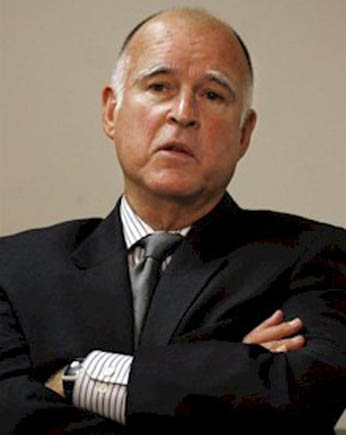JoAnne Kloppenburg’s allegation that Justice David Prosser met with Governor Scott Walker after the Supreme Court race – a contention that Prosser and Walker adamantly deny – may violate the Wisconsin Judicial Code of Conduct.
Kloppenburg made the allegation during her press conference to announce her intention for a state-wide recount, but she provided no evidence to back it up. Both Walker and Prosserdeny the meeting took place.
![]() Kloppenburg’s campaign spokeswoman, Melissa Mulliken, said she had “been in touch with two or three people with knowledge of the meeting.” However, she refused to name names.
Kloppenburg’s campaign spokeswoman, Melissa Mulliken, said she had “been in touch with two or three people with knowledge of the meeting.” However, she refused to name names.
The irony is rich. During the campaign leading up to this election the news media and the Left continued to draw focus on the 2008 controversy around Justice Michael Gableman for what was at worst a misleading campaign ad written by campaign staffers. But Kloppenburg campaign’s apparent overt factual falsehood received scant media attention, and no one seems to be raising the question of whether Kloppenburg violated judicial rules.
In Gableman’s case, The Wisconsin Judicial Commission accused him of violating SRC 60.06(3), a state Code of Judicial Conduct rule that forbids judicial candidates from knowingly misrepresenting “the identity, qualifications, present position, or other fact concerning the candidate or an opponent.”
Is Kloppenburg still a judicial candidate? By requesting a recount she maintains that status.
Prosser outright denies her assertion that he met with Walker, as does Walker.
Kloppenburg has not repudiated the claim, nor provided evidence to prove it.
So how does the SRC 60.06(3) not apply?
It begs the question of why the Judicial Commission is not investigating the Kloppenburg matter. Where is the media? Where are the complaints? Where is the scrutiny?
In a debate during the Supreme Court race, Kloppenburg was asked about the Gableman case and stated, “Of course judicial candidates have no constitutional right to make false statements.”
In 2009 an appellate court panel found that the Gableman campaign advertisement against Louis Butler did not violate the state of Wisconsin Code of Judicial Conduct. According to a Wisconsin State Journal article the only reason for the decision was because the judges found that each statement in the Gableman ad was factually true, “even if the words, taken together, left a false or misleading impression.” Two of the judges stated in that decision that discipline could be imposed only for “objectively false statements.” (The third judge also raised constitutionality concerns.) There are certainly constitutional and free speech questions about regulation of statements during campaigns. However, the silence from the Left, media, and judicial ethics advocates is deafening in the Kloppenburg case, especially considering the never-ending onslaught of criticism that Justice Gableman endured.
The state Supreme Court then deadlocked on the Gableman matter. Prosser joined the wing of the court that found that the rule should only apply to “objectively false statements,” whereas the liberal wing of the court wanted the rule to apply to contextually false statements. The state Judicial Commission then dropped its prosecution of Gableman.
With all the attention heaped on Gableman for a similar situation, it begs the question why Kloppenburg’s statements are not being subjected to legal or media scrutiny.
Some of Gableman’s harshest critics are now silent. For example,Robert Kraig, Executive Director of Citizen Action of Wisconsin, which had requested a Judicial Commission investigation, called the appellate decision dismissing the Gableman complaint a “sad day for truth in Wisconsin when a justice of the Wisconsin Supreme Court can lie in a campaign ad and not be punished.” Not surprisingly he hasn’t called for any investigation into Kloppenburg.
The executive director of the Judicial Commission told the media he was disappointed the complaint was dismissed.
Where are these people now?

COMMENTS
Please let us know if you're having issues with commenting.